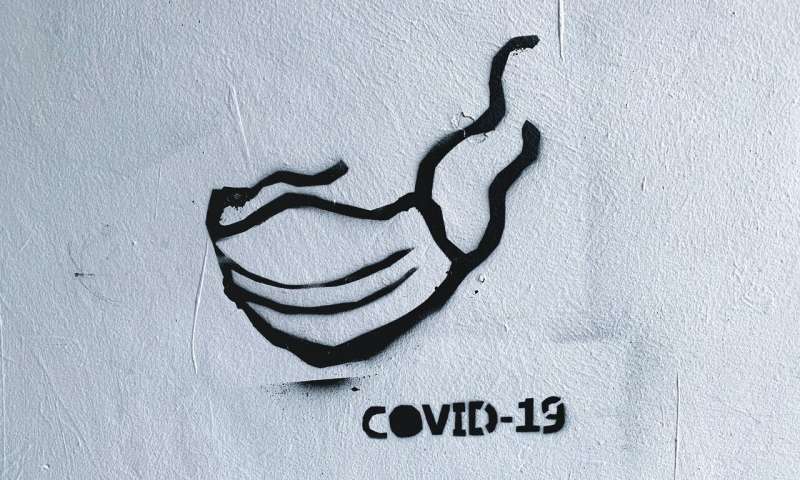Credit: CC0 Public Domain
President Vladimir Putin on Wednesday said he was opposed to mandatory coronavirus vaccinations for Russians but urged the jab-sceptic population to get inoculated as his country battles a deadly third wave.
Putin was addressing Russians during his annual televised phone-in session, answering questions posed live on air and in recorded videos, with more than two million questions sent in.
The topics touched on everything from rising food prices to relations with foreign powers, but the beginning was dedicated to Russia's most immediate concern: a surging outbreak.
"Preventing the further spread of the epidemic is possible only with the help of vaccination," Putin said.
As the phone-in kicked off, a government tally showed 669 virus fatalities over 24 hours—a pandemic high for the second day in a row.
Russia has since mid-June been hit with a third wave driven by the highly transmissible Delta variant first identified in India, and worsened by a sluggish inoculation drive.
Although free jabs have been available since early December, only around 15 percent of Russia's population had received at least one dose as of Wednesday, according to the Gogov website, which tallies COVID figures from the regions.
The slow uptake prompted Moscow Mayor Sergei Sobyanin earlier this month to order mandatory jabs for service sector employees, with more than a dozen regions in Russia since following suit.
Polls show that a majority of Russians oppose receiving coronavirus jabs, and the widening policy prompted concerns that all citizens would eventually be required to be vaccinated.
But Putin shot that idea down.
"I do not support mandatory vaccinations," he said.
Listen to 'specialists'
He nonetheless called on Russians not to skip the jab.
"It is necessary to listen, not to people who understand little about this and spread rumours, but to specialists," he said.
Putin also addressed concerns about the country's homegrown jabs, with surveys showing that Russians are sceptical of them in particular.
Saying that he had himself received the Sputnik V jab, Putin claimed that Russia's vaccines were better than foreign alternatives.
Throughout the phone-in Putin did not stray far from geopolitics, addressing Russia's relations with Ukraine and a spat with Britain over its warship passing by Crimea last week.
He also quipped that Russia did indeed have hackers, after a broadcaster blamed repeated technical difficulties on cyberattacks.
But the dominant topics were related to domestic affairs, with questions in particular on economic matters.
To support Russia's struggling economy authorities have avoided locking down as they did last spring during the first wave, and Putin was asked Wednesday if he supported reimposing the measure.
He responded that regional authorities were instead promoting localised mandatory vaccinations and other measures to avoid introducing new quarantines.
Euro match looms
Moscow, the epicentre of Russia's outbreak, has ordered businesses to send home at least 30 percent of unvaccinated employees and restaurants to only allow inside patrons who have been inoculated or were infected in the past six months.
The country's second-worst hotspot Saint Petersburg has avoided imposing strict restrictions, however, and on Friday it is due to host a Euro 2020 quarter-final drawing hundreds of supporters from abroad.
Nationwide, infections grew on Wednesday by 21,042, bringing Russia's caseload to more than 5.5 million—the fifth-highest worldwide, according to an AFP tally.
With 135,214 deaths from the virus, Russia has the highest official toll from COVID-19 in Europe—even as authorities have been accused of downplaying the severity of the country's outbreak.
Under a broader definition for deaths linked to coronavirus, statistics agency Rosstat at the end of April said that Russia has seen at least 270,000 fatalities.
© 2021 AFP
























